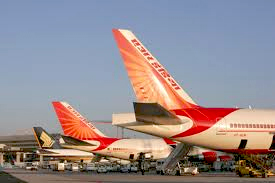 New Delhi, Feb 16: Air India, which is in the process of selling five Boeing 777 aircraft to Etihad and carrying out sale-leaseback of its Dreamliners, would use the proceeds to pay off aircraft loans and meet working capital needs, according to official sources.
New Delhi, Feb 16: Air India, which is in the process of selling five Boeing 777 aircraft to Etihad and carrying out sale-leaseback of its Dreamliners, would use the proceeds to pay off aircraft loans and meet working capital needs, according to official sources.
The sale of five Boeing 777-200 Long Range aircraft to Abu Dhabi-based Etihad Airways is estimated to fetch $336.5 million for the ailing national carrier. The title of these planes would be transferred to Etihad by April, the sources said.
The decision to sell these planes was taken after exploring other options like leasing, re-configuring them or deploying them on short-haul routes. However, all these options were found economically unviable, they said. The airline also projected that it could raise about $840 million by way of sale of its seven Boeing 787-8 Dreamliner planes and lease them back. It intends to pay off the bridge loans taken against these aircraft by using the funds, the sources said.
For the first seven of the Dreamliners it received, Air India has mandated the leaseback arrangement with Investec Bank for four of them and Deutsche Bank for three. This year, the airline, which has 11 Boeing 787s, would get six more.
Sale-leaseback or leaseback is an arrangement in which an owner sells an asset to a leasing firm and, at the same time, leases it back. Therefore, one continues to be able to use the asset on a long-term basis but no longer owns it. All proceeds thus received would be adequate to repay the aircraft loans, while the the surplus generated could be used to clear debts meet the airline's working capital needs, the sources said. Air India's huge debt and liabilities are estimated at over Rs. 20,000 crore.
These measures were being taken in line with the turnaround and financial restructuring plans, they said.
The sale of the Boeing 777 aircraft to Etihad was approved by the Cabinet Committee on Economic Affairs in November last year, soon after the Gulf carrier received regulatory approvals to pick up 24 per cent stake in Jet Airways.
Etihad plans to use these five aircraft to launch non-stop flights between Abu Dhabi and Los Angeles from June. Air India, which had acquired the Boeing 777 aircraft as part of the 68 aircraft it bought from the US manufacturer in 2006 in a deal totalling Rs. 35,000 crore planned to sell these planes on grounds of being fuel-guzzlers and replace the long haul sectors operated by them with the fuel-efficient Dreamliners.
The airline had placed orders for 68 aircraft with Boeing in January, 2006, including for 27 Dreamliners, 41 B-777s and B-737-800s.
Apart from this, the national carrier had also booked 43 planes from Airbus which have already been inducted into its fleet.





Comments
Add new comment